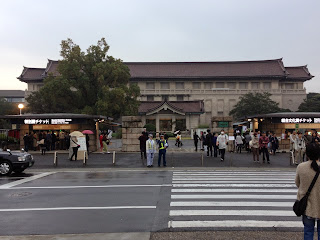 Board of Oversight and Review of Specially
Designated Secrets of each House of the Diet made the report on the national
secrets, which had been registered in 2014, and submitted to each Speaker on
Wednesday. Both boards did not judge whether the government was right or wrong
in registering them. Designated Secrecy Act in 2013 proved to be allowing the
executive branch exercising unlimited power on controlling information, which
must primarily be belonging to the people.
Board of Oversight and Review of Specially
Designated Secrets of each House of the Diet made the report on the national
secrets, which had been registered in 2014, and submitted to each Speaker on
Wednesday. Both boards did not judge whether the government was right or wrong
in registering them. Designated Secrecy Act in 2013 proved to be allowing the
executive branch exercising unlimited power on controlling information, which
must primarily be belonging to the people.
Each board made research on 382 specially
designated national secrets, which were registered by ten executive organizations,
including Ministry of Foreign Affairs or Ministry of Defense, between December
10th and 31st in 2014. The board in House of
Representative made 150 pages of report, while that in House of Councillors
spent 60 pages.
In the interview of board members to the Ministries,
bureaucrats mostly refused to reveal the details of specially designated
secrets. On personal information about Mr. X, who was the North Korean liaison
of secret negotiation over summit meeting between Prime Minister Jun-ichiro
Koizumi and Kim Jong-il in 2002, bureaucrats did not reply to the question
whether it would be a specially designated secret or not. They refused to
answer about existence of secret document on the kidnapping of Japanese
journalist by Islamic State in 2015 with reason of confidentiality of
international relationship.
The board in House of Representatives
requested improvement of disclosure, including detailed explanation about the
list of specially designated secrets or disclosure of transcript of discussion
in National Security Council. However, recommendation of the board does not
have coercive power for disclosure. The board would be an organization for
endorsing every secret the government holds.
There is another organization that oversees
the registration of specially designated secrets. That is called Independent
Archives Administrator in Cabinet Office. While the administrator has a power
to request improvement in registration, Ministries can also refuse it. Although
the administrator submitted ten-page report, it only reviewed 165 documents out
of all 200 thousands.
In spite of inability to access national
secrets, lawmakers in charge of oversight can be punished, if he or she leaked
specially designated secret. Because leading party occupies majority of each
board, the check cannot be completed against current administration. Against provision
of Constitution of Japan that put the Diet on the top of triangle of the government,
the executive branch gained exclusive power to control national information.
















